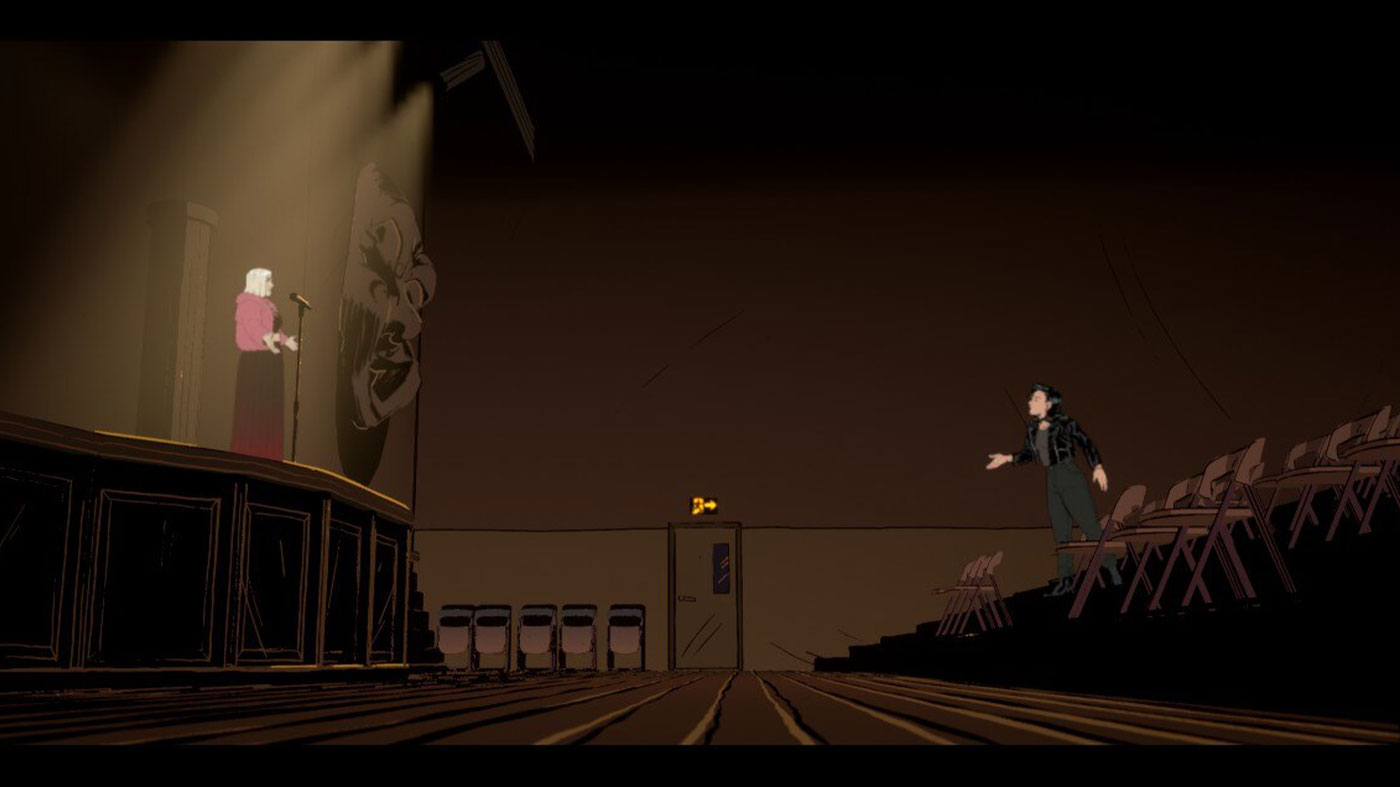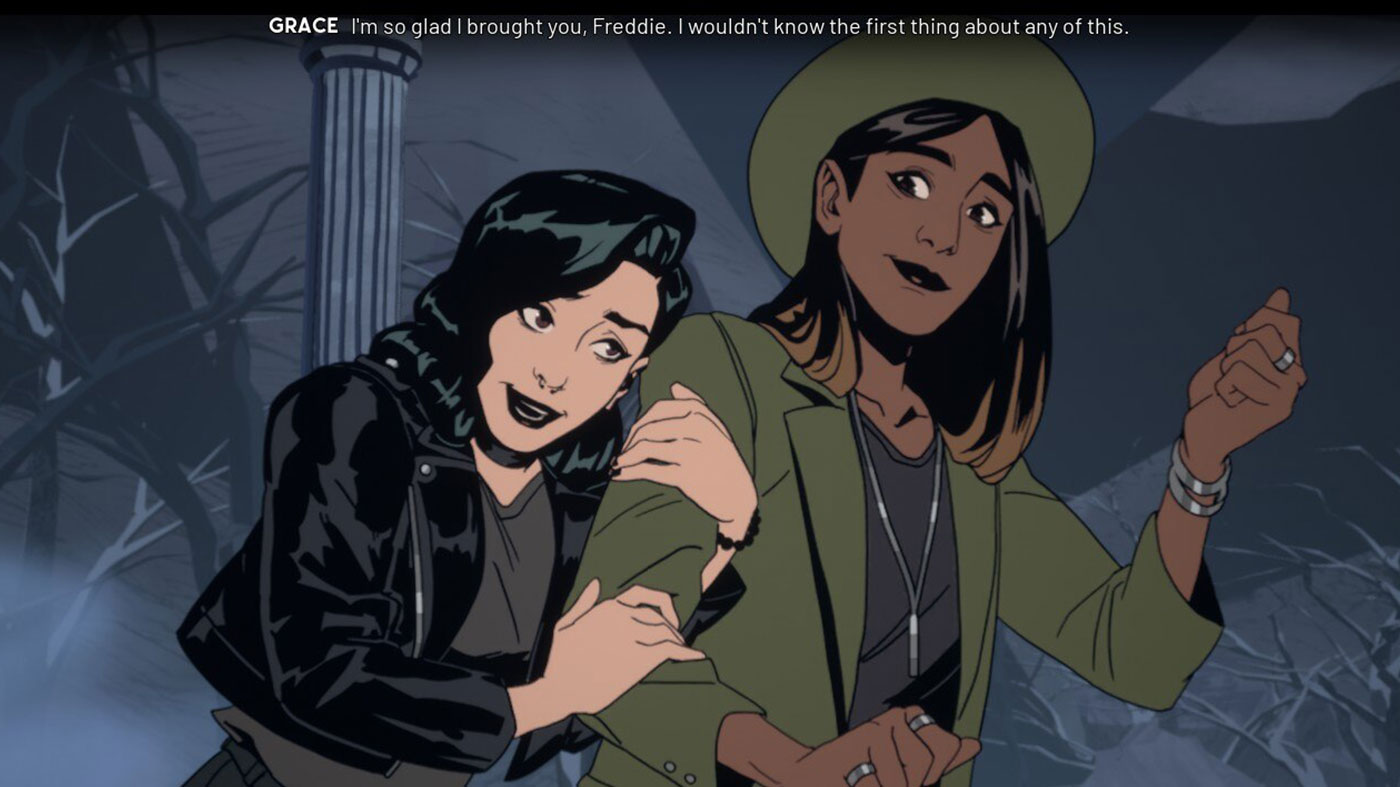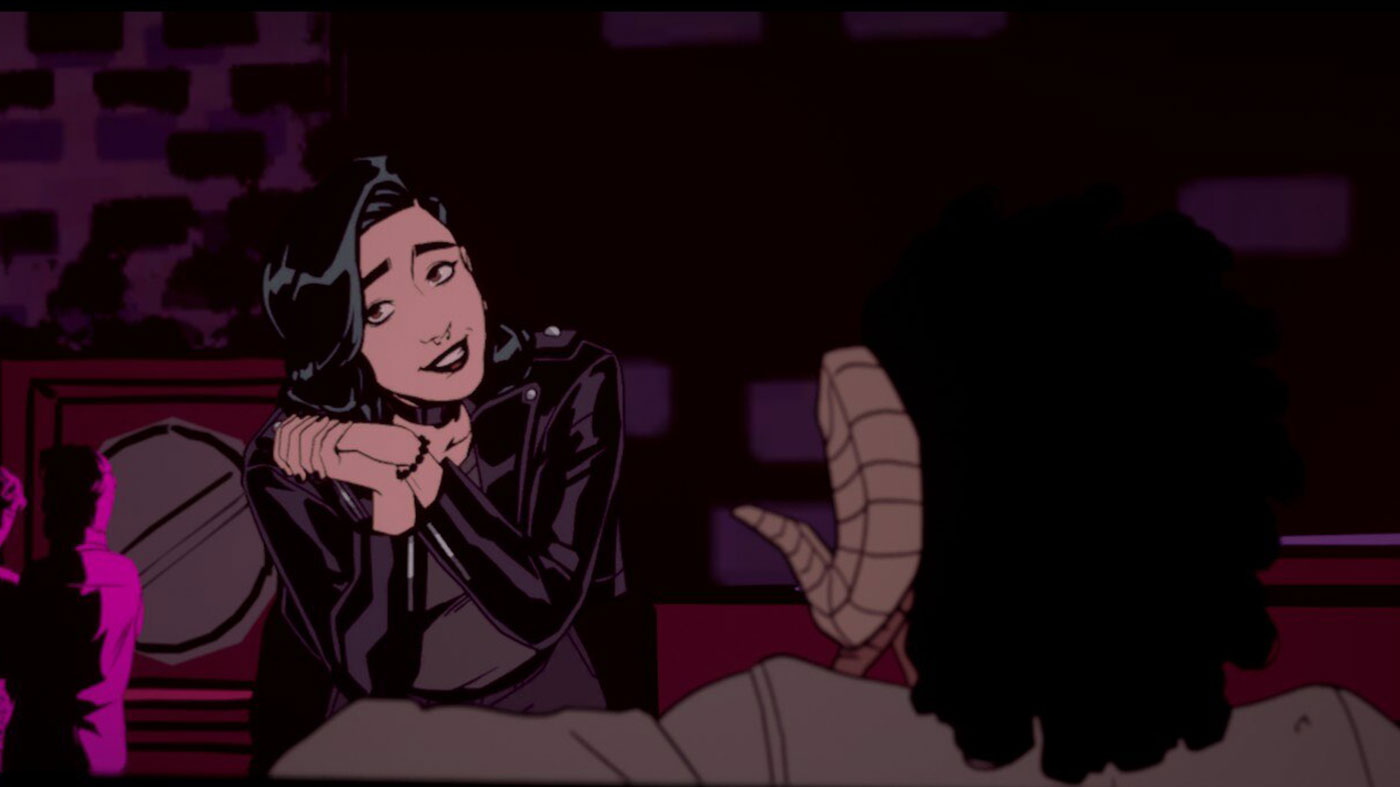Once known as Chorus, Stray Gods is the ambitious debut title from Summerfall Studios, a new independent studio spearheaded by David Gaider, who cut his teeth in the industry taking the lead writing a number of BioWare games. The fashion in which it tells a fantastical story within a regular, urban setting reminded me a bit of Fables—the graphic novel on which The Wolf Among Us is based. However, it remains a novel experience by delivering much of its story through song.
We’ve seen television veer into musical theatre from time to time, as shows like Buffy the Vampire Slayer and Scrubs have produced big, lavish episodes brimming with catchy songs and dance numbers. The results often speak for themselves, but they’re a creative, light-hearted departure from the main story arcs. I’ve not played every game ever so I won’t confidently declare Stray Gods to be a trailblazing first. However, given the team at the helm, it’s undoubtedly the highest-profile title to make the jump from game to musical.

After the idol Calliope is unceremoniously killed under mysterious circumstances, her eidolon, the essence of an idol’s godlike powers, passes to Grace following a chance encounter the pair share during the latter’s band auditions. Calliope’s death becomes the subject of Grace’s trial at the hands of Athena and you’re tasked with proving your innocence before your trial and likely execution. I think the story is clever, especially the way it presents these gods within the context of a mortal world, and how the fatigue of their constant transmigration weighs heavily on them.
Though it’s a big cast, with the likes of Laura Bailey and Troy Baker in the lead roles of Grace and Apollo respectively, you’d be forgiven for thinking Stray Gods is top-heavy in terms of talent. I’d argue that the game has a deep bench in terms of voice talent, even if they’re not as capable on the microphone as the leads—Rahul Kohli, who plays a bashful and bumbling Minotaur, remains a baffling choice as his singing chops are non-existent, leaving his comedic timing as his singular attribute in this particular performance. Similar deficiencies can be heard during harmonies, or in any of the many call-and-response phrasings involving more than one singer. There’s a lack of confidence that is audible from certain performers, whether it’s the material itself or their own hesitance; it does stick out like a sore thumb.

It’s evident that representation was a focus when pulling the ensemble together, the team even went as far as to reflect their actor in their god, where appropriate. For example, voiced by Erika Ishii, Hermes is presented as a gentle, genderfluid emissary, while Apollo is a shirtless surfer bro—so perhaps they’re not all one-for-one. It feels like an ensemble of angsty millennials, except the dialogue isn’t remotely as exhausting as that makes it sound.
Though it is billed as a roleplaying musical, Stray Gods delivers more on the latter than the former. While you shouldn’t expect skill trees and stat distribution, your choices, and how you attempt to curry favour with the gods, can branch the narrative off in some significant ways which should come as no surprise for anyone familiar with Gaider’s work on Dragon Age and Knights of the Old Republic. Rather than accruing stats or having your choices ultimately unlock dialogue options, you’ll choose from a few proficiencies to carry with you throughout. I opted for charm and, later on when the option presented itself, I went for a more abrasive, ‘kick ass’ attitude adjustment. Like a lot of other narrative-driven, choose-your-own adventure-likes, these choices will open up dialogue options that, without providing much story craft, fill out the narrative’s flavour.
Stray Gods is also a very horny game. In fact, my biggest takeaway was that these idols have likely spent their era-spanning existence on the mount and the invitation is definitely extended in bulk, and accepted by, in my instance, Grace throughout her investigation. That said, pursuing these romantic interests didn’t really feel earned during my play through and felt like something of an afterthought and a means to fog the windows up a bit.

Another area where choices can create a bit of flavour is within the songs themselves. During a bunch of the numbers, Grace is able to interject or steer the arrangement in a particular direction, whether that’s an aggressive or passive path is up to the player. Not only does this provide a replay value, but it’s also a neat feature to offer a bit of agency over how a song pans out. I can’t help but feel that the songwriters might have been spread a bit thin considering every permutation, however. Except for a select few, the songs in Stray Gods don’t get their hooks in and are fast forgotten as you advance the plot. I do think the songs they choose to reprise and use as motifs throughout are well-picked, particularly Grace’s first solo which features prominently throughout.
The game’s story unfolds similarly to a visual novel, serving the player with beautiful, hand-drawn frames that have small flourishes of expression to help make the cast feel alive. Excluding the few that don’t reside among mortals, the design of these idols remains pretty grounded throughout, though I would say their appearance reflects their personalities. One touch I loved was how the aspect ratio shifts to letterboxed for any of the musical numbers, it gives it a cinematic quality that flouts its low-cost presentation.
I also feel like Stray Gods aimed to present itself as a non-linear game all about choice but fails to deliver a compelling way to get from place to place. Picking whether to visit Apollo or Persephone from an over world map, for example, isn’t exactly an exciting transition. In fact, this game’s strengths from a visual design perspective definitely do not extend to the UI and UX, which is rather drab and had me wishing the team managed to implement a more appealing means to present the player with choice.

The most damning thing I can say about Stray Gods is that it’s a musical with very few memorable tracks. Otherwise, it’s well-written and offers up a novel way to experience the gods among us trope.




